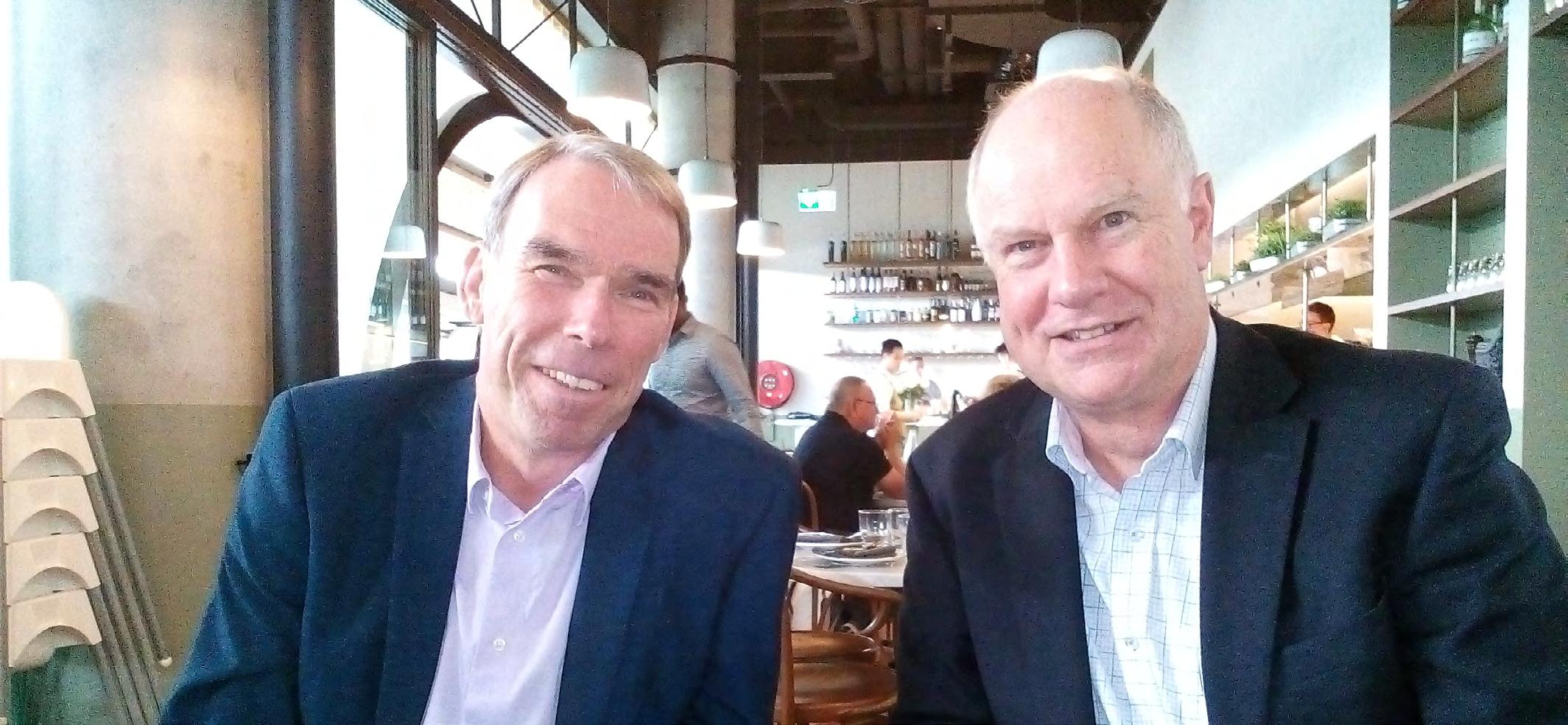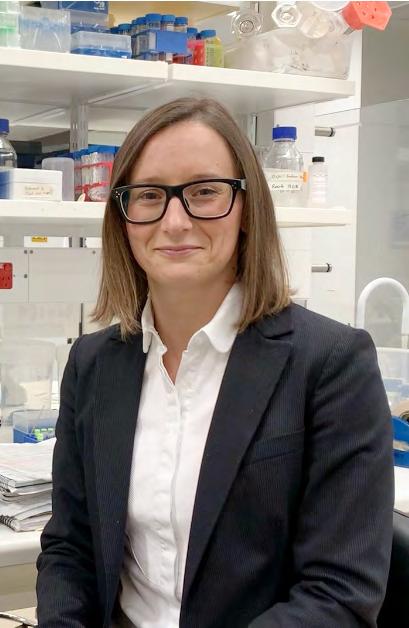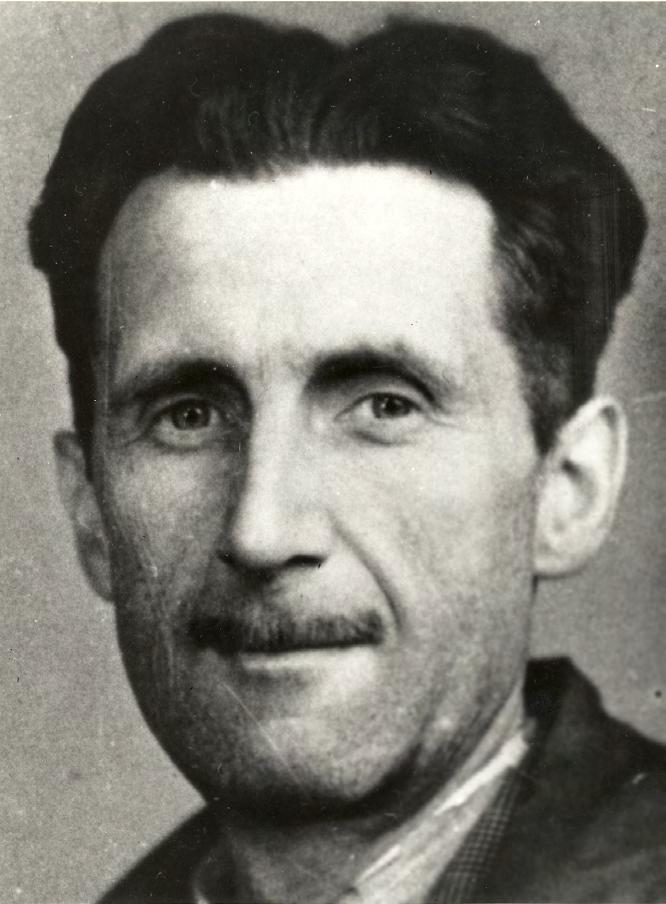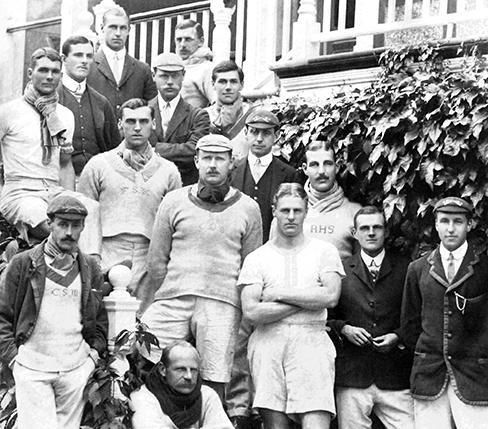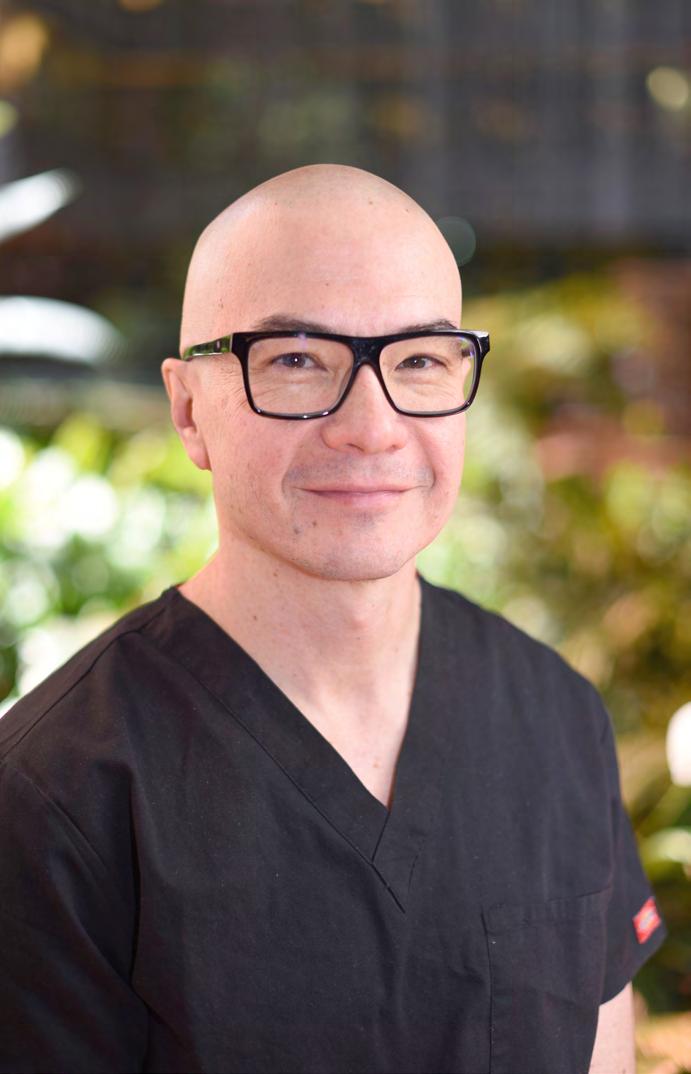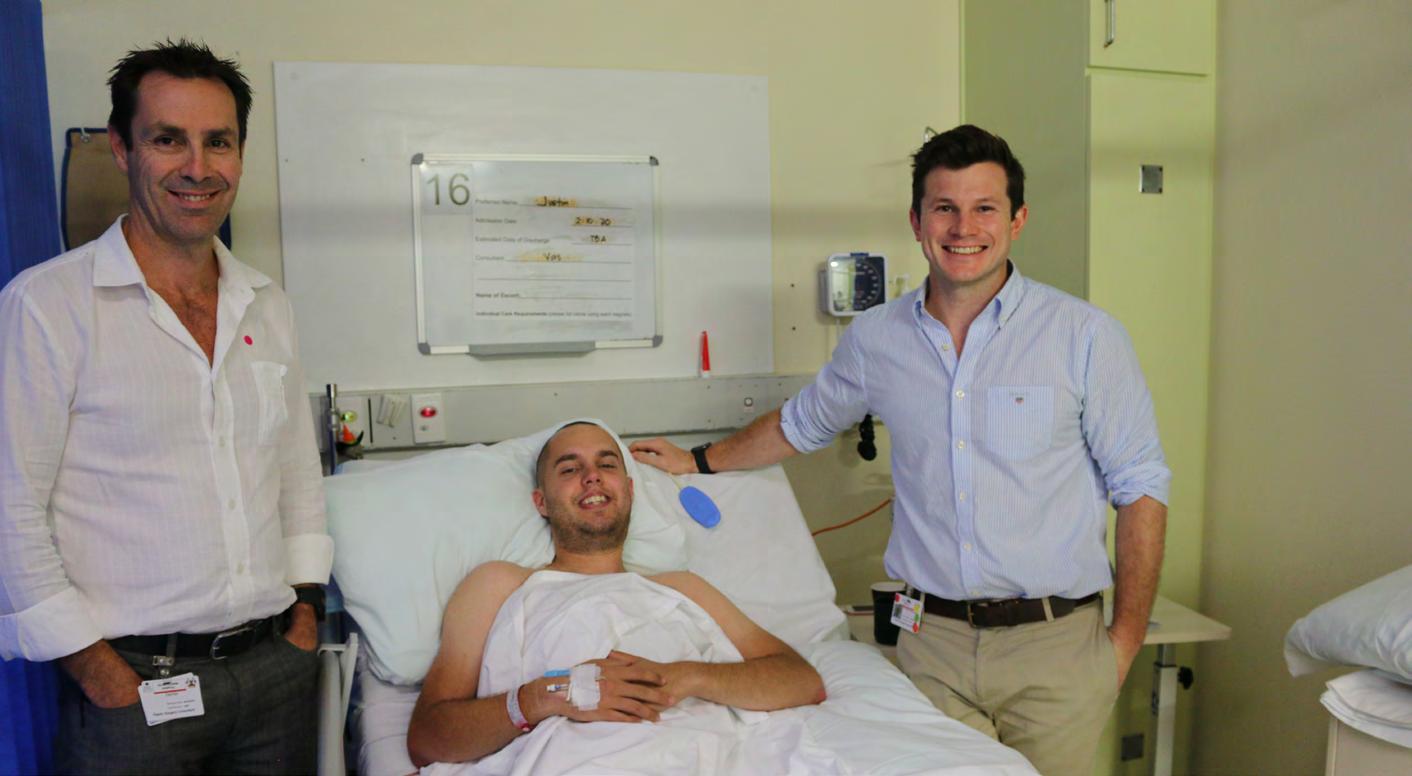
19 minute read
Case note review
General Surgery: ineffective transfers
Reviews of important surgical procedures help us improve outcomes. This is a case study selected by the Australian and New Zealand Audit of Surgical Mortality (ANZASM) Committee for your information. Case Summary: A patient in their early 60s was admitted to the emergency department of rural hospital A with a history of abdominal pain (10 days-3 weeks), haematemesis (one week), melaena and hypotension. The patient had pneumonia about three weeks prior. Co-morbidities included hepatitis C from previous intravenous drug use, heavy alcohol intake of one cask of wine daily, emphysema (smoker of 35 cigarettes daily), depression and benign prostatic hyperplasia. About four hours afterwards, the patient was transferred to regional hospital B, arriving in the emergency department at 00:30. Noradrenaline infusion and IV antibiotics were started. Lactate was noted to be 13, with pH 7.24, haemoglobin (Hb) 143 and white cell count of 4.3. Generalised abdominal tenderness was documented. The patient was admitted to the Intensive Care Unit (ICU) where the ICU consultant and on-call anaesthetist were reported to be ‘happy to manage the patient’. Surgical review by the registrar at 05:15 stated that the patient was not accepted by the surgical team prior to transfer. The patient was seen by the surgical consultant at 07:25. The CT at that time showed diffuse mural thickening of the rectum up to 10 mm, perirectal inflammatory change, diffuse oedema of presacral/extraperitoneal fat and diffusely thick-walled oesophagus. Ischaemic colitis was diagnosed and arrangements made for transfer to metropolitan hospital C. The patient was on noradrenaline 20 mg/min and vasopressin. The patient eventually arrived at hospital C at 20:00 (24 hours after the first hospital admission) and was attended by the surgical Fellow almost immediately. By that time noradrenaline was down to 4, platelets at 12, Hb 90. The patient was taken to theatre within an hour and underwent a gastroscopy and flexible sigmoidoscopy, which found old blood throughout the oesophagus and stomach, distal oesophagitis and grossly ulcerated rectal mucosa 10-15 cm from the anal verge and inflammation from 5-10 cm. Laparoscopy showed ‘pus around liver, right paracolic gutter and pelvis; normal small bowel with no fibrin to suggest perforation’. The colorectal Fellow and gastroenterology registrar were present during surgery, and discussion with the surgical consultant concluded with the agreed diagnosis of ‘bacterial peritonitis from rectal translocation’. A drain tube was placed, and 3-litre washout performed. No laparotomy was conducted. The patient was managed postoperatively in ICU. A repeat CT the following day showed diffuse colitis associated with splenic infarct, with sparing of transverse colon. Throughout the stay, the patient battled issues of persistent thrombocytopenia/anaemia requiring transfusions, bilateral lung consolidation thought to be aspiration from intubation, candidaemia on cultures and delirium. Input was sought from infectious diseases, cardiology, colorectal and gastroenterology subspecialties during this time. On postoperative day six the patient was stepped down from ICU, but quickly had a MET (Medical Emergency Team) call that night for tachypnoea and altered conscious type, acute pulmonary oedema and type 2 respiratory failure. Following readmission to ICU, it was decided with the family not to escalate respiratory support or reintubation. The patient died two days later. Comments: An area of consideration in this case was the initial decision to transfer the patient from rural hospital A to regional hospital B without first discussing with the admitting surgical team their capability to manage the patient. Similarly, it is unclear why the surgical team at hospital B then decided to transfer the patient to hospital C despite the availability of an ICU bed with ventilator and a willing anaesthetist. Ischaemic colitis usually is managed with IV antibiotics, and a patient is only transferred if no postoperative ICU bed is available. Nevertheless, besides the waste of resources from multiple transports, this probably would not have changed the outcome. Patient management at hospital C was thorough and complete. It was reasonable not to convert the patient from a laparoscopy to a laparotomy when it seemed that most of the rectal ischaemia was under the peritoneal reflection and a platelet of 12 indicated the patient was extremely unwell. The fact that the patient never recovered post-surgery is a reflection of the extensive comorbidities. Further surgical intervention in the form of laparotomy, colorectal resection and stoma would probably have been futile in such an ill patient. ANZASM Clinical Directors Comment: Poor care related to the transfer of
Advertisement
patients between hospitals has been highlighted by ANZASM on many previous occasions. The most important and repeated problem documented by ANZASM is a failure of adequate communication between the referring and receiving teams. A single, simple step that would address this would be for the patient to be directly and personally discussed with the receiving consultant. ANZASM has previously recommended consultant-toconsultant discussion as an embedded part of the transfer protocol. Its formal introduction is now well overdue. Importantly, it would permit the receiving consultant to provide professional and personal support to Graham commenced in the role of Manager, Library and Information at the Royal Australasian College of Surgeons (RACS) in November 2013 around Melbourne Cup time, so it will be just over seven years’ service when he retires. While Melbourne and Victoria were exciting, new and different to the born and bred Sydneysider, working in a college library was not; Graham had previously spent 19 years managing the library at the College of Nursing. At RACS he inherited a very experienced, professional and expert library team that has supported him very well throughout his tenure. The library service was already in good shape thanks to Graham’s predecessor. RACS is also an organisation that values and supports its library, recognising that surgeons and Trainees require a quality information service to inform and support them in their roles. Nevertheless, inheriting a good service did not mean that things could not be improved. Looking back at 2013 and comparing the state of the library with its present day incarnation reveals a number of enhancements that have greatly benefited the users of the service. the referring colleague who is often managing a stressful situation in isolation. Consultant-to-consultant discussion is also a professional courtesy.
Professor Guy Maddern, Surgical Director of Research and Evaluation incorporating ASERNIP-S
Please note: these cases are edited from ANZASM first- or second-line assessments that have been generated
Farewell to Library Manager Graham Spooner
What has changed in his seven years at RACS?
by expert surgeons in the field. Online ordering of documents and literature and database searches were already in place in 2013, but the forms used to make these requests have been enhanced and made easier to use. IT projects throughout the College will soon improve and streamline these services even further. A Library Review, undertaken soon after Graham’s commencement, identified that awareness or alerting services were not available to patrons but could prove to be a worthwhile addition. Two options were evaluated and introduced, and both are still operating successfully in 2020. The eTOCs (electronic Tables of Contents) service now has over 1300 subscribers who receive regular email alerts of new journal articles of interest. There are 15 sets, including one for each surgical specialty and some sub-specialties, as well as topic-based sets. For more details and to sign up to eTOCs visit surgeons.org/ library/etocs. The other option was the Read by QxMD app, which allows for a customisable means of receiving alerts for individual journals or topics via a mobile device or desktop. There are currently 946 subscribers. Further information about Read can be found here.
Graham also undertook the successful trialling and roll out of the BrowZine phone, tablet and desktop app, which is now used hundreds of times a day by library clients. It facilitates the creation of a personal, portable “virtual bookshelf” for any device. Find out more details here.
The developer of this app has also continued to enhance and expand the scope of their products. LibKey Nomad will check our holdings and provide a link to the full text of any RACS subscribed article from anywhere on the web (PubMed, Wikipedia and other publisher sites). Download the extension (desktops/laptops only) and choose “Royal Australasian College of Surgeons” as your Library. Available now for Chrome and Edge, Vivaldi, Brave and Firefox. Find out more here.
LibKey Nomad was also added to the Summon search tool, and makes it much easier to access the PDF full text of subscribed journal articles. If a searcher has a citation that lists its DOI
or PMID, they can simply enter either into the new request form to access the PDF or full text quickly and easily (where we have a subscription). If the Library does not hold the article, it will revert to the usual request form. Look for the new form on the RACS Library website or visit the LibKey website. These ongoing improvements and access to new products have all been added by the developer Third Iron at no extra cost to RACS. Graham’s predecessor successfully led the team in undertaking the massive move to a virtual library, which was soon well-valued and used by the membership. Unfortunately, RACS staff did not engage with it as much. However, Graham was able to slowly change the erroneous perception that the library and its resources were just for Fellows, Trainees and SIMGs. Library use by staff has steadily grown, along with the realisation that staff can call on the library team and the vast resources available to support them in their roles. A library space on the RACS’ intranet was also developed to reinforce the message that library staff are at the service of all RACS employees. As Graham continued to look for opportunities to improve RACS’ overall operations, he became aware that the organisation had no mandated referencing style. Based on its existing use in the RACS journal (the Australia and New Zealand Journal of Surgery), his efforts led to the adoption of the Vancouver style and inclusion of the relevant information in the Style Guide. Two workshops on using Vancouver for referencing were developed and successfully run by Graham for Melbourne staff. He will pass the idea of adapting the face-to-face workshops to online formats for non-Melbourne staff on to his successor. After discussion with those within the organisation who developed courses, seminars and other educational events, the library team began to undertake the preparation of linked reading lists (in Vancouver style, of course!). These were added to the library website with hyperlinks to individual e-books or e-journal articles to provide easy access for pre- or post-course reading and follow-up materials for participants. The preparation of reading lists has also been made available to groups affiliated with RACS to enhance their events. Very soon after his commencement at RACS, Graham found out that he would be attending the Annual Scientific Congress (ASC) in Singapore in May 2014. Closer to the event, he discovered that he would also be responsible for finalising the organisation of the RACS booth and managing it on the ground. After a bit of a hiatus, he planned and organised the RACS booth for the last three years. He said he feels privileged to have travelled to Singapore, Bangkok, Perth, Brisbane, Gold Coast, Sydney, Lismore and Adelaide (twice!) to attend the ASCs and other events to engage with members about what the library can offer them. New Zealand was in his sights before he decided to retire. Graham has also ensured that RACS does the legal and correct thing regarding copyright compliance in terms of its educational and organisational activities. The two licences negotiated with the Copyright Agency Ltd mean that RACS has more scope to use copyright materials while remaining compliant as far as the fair use of others’ copyright materials is concerned. In 2013, RACS was not participating at all in social media. Once Facebook and Twitter accounts were established, Graham and the library regularly supplied content to the Communications team for posting and tweeting. In addition, Graham has constantly kept library resources and services front and centre through regular contributions to Fax Mentis and Surgical News. Graham was asked: ‘What will you miss about working at RACS?’ When reflecting on his time at RACS, Graham noted that he will sorely miss being surrounded by great colleagues throughout the organisation who are committed to their roles and are really trying their best for Fellows. He will miss working with, and supporting, his team and all the other departments with whom he has regularly interacted or collaborated. He has loved being a librarian for 40 years and will continue to support and promote libraries’ important role and function in society. Graham has sorely missed his morning and afternoon walks to work and back through Yarra Park and Fitzroy Gardens in 2020. He said he is a bit sad that he will not be able to resume his daily walks before retiring. Graham wishes everyone in the organisation the very best for the future and is very satisfied to have made his seven-year contribution to the development and progress of the organisation. He said he has left the library in a great position and wishes his successor well as they continue to develop and enhance the services and resources on offer.
Council 2020 elections
The pro bono contributions of Fellows has been and continues to be the College’s most valued asset and resource. We are grateful for their commitment and are also grateful to the voting Fellows who demonstrate their engagement with the governance of the College. The results of the 2020 elections to the Royal Australasian College of Surgeons (RACS) Council will be tabled at our Annual General Meeting in Melbourne on Thursday 13 May 2021, when newly elected Councillors take office. Congratulations to the successful candidates and sincere thanks to all candidates who nominated. Fellowship Elected Councillors Nicola Hill – Otolaryngology, Head & Neck Surgery, New Zealand (newly elected to Council) Andrew Hill – General Surgery, New Zealand (re-elected to Council) Christine Lai – General Surgery, South Australia (re-elected to Council) Maxine Ronald – General Surgery, New Zealand (re-elected to Council) Specialty Elected Councillors Cardiothoracic Specialty Elected Councillor: Andrew Cochrane, Victoria (newly elected to Council) Paediatric Specialty Elected Councillor: Philip Morreau, New Zealand (newly elected to Council) General Specialty Elected Councillor: David Fletcher, Western Australia (re-elected to Council unopposed) Vascular Surgery Specialty Elected Councillor: John Crozier, New South Wales (re-elected to Council unopposed) Farewell to outgoing Councillor Thank you to our outgoing Councillor – James Churchill, RACS Trainee Association co-opted Councillor.
Congratulations to all award recipients, as approved by the Awards Committee and Council in 2020
Singular Awards
Award for Excellence in Surgery Dr Bryan C. Mendelson FRACS Sir Alan Newton Surgical Education Medal
Professor Ian W. Incoll FRACS Distinguished Awards
John Corboy Medal Dr A. Anna Morrow Gordon Trinca Medal Associate Professor Andrew Kurmis FRACS ESR Hughes Award Dr Richard A. Barnett AM FRACS Mr Neil A. Vallance FRACS RACS International Medal Mr Keith L. A. Mutimer FRACS Colin McRae Medal Mr Andrew B. Connolly FRACS Rural Surgeons Award Mr R. John Kyngdon FRACS Mr Bal Krishan FRACS
Other Awards
Henry Windsor Visiting Lectureship Professor Michael J. Solomon FRACS.
In memoriam
RACS publishes abridged obituaries in Surgical News. We reproduce the opening paragraphs of the obituary. Full versions can be found on the RACS website.
Our condolences to the family, friends and colleagues of the following Fellows mentioned below.
Robin Cripps (NT) John C Hargrave (NT) (see page 26)
If you wish to notify the College of the death of a Fellow, please contact the relevant office: ACT: college.act@surgeons.org NSW: college.nsw@surgeons.org NZ: college.nz@surgeons.org QLD: college.qld@surgeons.org SA: college.sa@surgeons.org TAS: college.tas@surgeons.org VIC: college.vic@surgeons.org WA: college.wa@surgeons.org NT: college.nt@surgeons.org Robin Leslie Cripps FRACS Orthopaedic trauma surgeon 6 February 1944 – 6 October 2020 Many thousands of Northern Territorians owe their ongoing function, mobility and wellbeing to the life and tireless work of orthopaedic trauma surgeon Robin Cripps FRACS. Robin was born in Biggenden, near Maryborough in regional Queensland. The youngest of four children, his family’s life was shattered when Robin was four years old and his father died from the effects of a snake bite. Due to severe financial difficulty, Robin became a ward of the state, while still being allowed to live with the family. Life was constrained and difficult. Robin developed an early interest in electronics and mechanics while working in his brother’s auto electrical business. This continued as an abiding and satisfying hobby throughout his life. Despite his circumstances, Robin’s intelligence, drive and ability led to a scholarship and entry into medical school at the University of Queensland. Upon graduation in 1969, he undertook residency years in Maryborough and Rockhampton. He was greatly appreciated as a young doctor of significant ability across multiple areas, but especially in the surgical arena. He was observed to be energetic and kind, especially to the elderly, and a man to depend on in a crisis or moment of difficulty. Robin was self-effacing and shy but encouraged confidence and calm as he carefully and logically worked through clinical problems and complex scenarios. It was in Rockhampton that Robin met his future wife, Erna and, after marrying in 1975, the couple formed a powerful team for the next 45 years. That year the young couple went to England for further clinical experience and spent a memorable 18 months at Northallerton in the Mowbray Valley in north Yorkshire. Robin’s time was consumed with satisfying work serving the population as a surgical registrar with only a little time to enjoy the beautiful ‘Herriot’ countryside. Upon returning to Australia, Robin undertook several jobs in Queensland and then Launceston, Tasmania, but was frustrated that his procedural skills could not be fully utilised. He applied for positions in the Northern Territory and in 1979 was appointed Medical Superintendent to the isolated town of Tennant Creek in the Barkly district. He transferred to Darwin at the end of 1981 and thus began his role as anchor-man for orthopaedic trauma in the Top End of the Territory. At that time Steve Baddeley was the recently appointed, sole orthopaedic surgeon in the whole of the Territory. The trauma load was - and continues to be - very onerous and Robin was soon assigned to support Steve with this work. Robin’s surgical experience along with his natural and acquired dexterity and mechanical genius was a natural fit for the challenges of reconstructing shattered limbs with the newest techniques of osteosynthesis and internal fixation. He rapidly became the focus for traumatic orthopaedics in the Top End of the Northern Territory. He subsequently undertook sponsored AO workshops in Switzerland and impressed the instructors and the other course participants and observers with his effective, out of the box solutions to difficult reconstructive problems. Associate Professor Phill Carson FRACS For the full obituary please visit our website.
Thank you for your extraordinary compassion and generous support to the Foundation for Surgery in October. Thanks to you, many more children, families and communities have access to quality surgical care when they need it most. Every donation makes an incredible difference throughout Australia, New Zealand and the Asia-Pacific region.

Gold / Platinum ($10,000 +)
The late Mr Andrew James Cowle Hobart Eye Surgeons Assoc Prof Paul McCartney
Bronze
Mr Kevin Angel Mr Frank Anning Assoc Prof Rupert Atkinson Mr Stephen Bambery Miss Ginny Barro Mr Robert Bartlett Anonymous donor Anonymous donor Mr Michael Bickford Mr David Bird Mr Laszlo Borbely Miss Ingra Bringmann Ms Belinda Brown Mr Peter Byrne Prof Ian Campbell Mr William Castleden Mr Simon Ceber Dr Bernard Cheung Ms Rebecca Clancy Anonymous donor Mr Harvey Coates Mr Rowan Collinson Mr David Cottier Anonymous donor Dr Upeksha De Silva Anonymous donor Assoc Prof Leo Donnan Mr Peter Dryburgh Mr David Elder Mr Falah El-Haddawi Assoc Prof Joseph Epstein Ms Patricia Foster Dr Barry Fryar Dr Susan Gerred Dr Anna Giles Mr Robert Gray Dr Douglas Greer Mr Garry Grossbard Mr Peter Grossberg Mr Dennis Gyomber Mr George Halliday Prof Philip Hardcastle Mr Trevor Harris Anonymous donor Mr Nigel Henderson Mr John Hill Anonymous donor Tasmanian Medical Volunteers Anonymous donor
Anonymous donor Prof John Hunn Mr Ross Johnson Mr Craig Jurisevic Mr Srisongham Khamhing Dr Heenkenda Kotakadeniya Mr Matthew Lawrence Mr John (Fred) Leditschke Mr Tristan Leech Mr K Lever Mr Tony Lewis Dr Eric Lim Mr Luke Martindale Mr Glenn McCulloch Mr John McKessar Mr Richard McMullin Mr Dragomir Mladenovic Mr Denis Nave Mr Mark Newman Anonymous donor Mr Olubukola Oloruntoba Mr Kim Ostinga Anonymous donor Ms Meron Pitcher Mr Roderick Plowman Dr Vaibhav Punjabi Prof Christopher Pyke Assoc Prof Prem Rashid Anonymous donor Emeritus Prof Thomas Reeve Dr James Ritchie Anonymous donor Mr David Speakman Mr L Stiefel Mr Ramesh Velu Assoc Prof Bruce Waxman Mr Gerard Wilkinson Dr Joy Wong Mr David Wood Anonymous donor “What counts in life is not the mere fact that we have lived. It is what difference we have made to the lives of others”

- Nelson Mandela
Imagine how much further your impact could reach in the next year, particularly now, when you are needed most.


Donate today and help children, families and communities access the essential surgical care they need, when they need it most. Please go to www.surgeons.org/donations to donate. Please act now, make a difference and help ensure safe and quality surgical care is accessible when it's needed most.

Imagine how much further your impact could reach, particularly now, when you are needed most.
Please act now, make a difference and help ensure safe and quality surgical care is accessible to children, families and communities when it’s needed most.
Click here to donate online and receive an instant tax receiptDonate now online
Click here to print this page (select page 69 on your printer) and send it with your donation today
Or call +61 3 9249 1290 (AU) or +64 4 385 8247 (NZ) to donate right now.
Yes! I want to make a difference and help ensure access to safe and quality surgical care.
Please accept my donation of: $ One-off Monthly*
My contact details are: RACS ID (if applicable):
First name:
Address:
Phone:
My credit card details are:
Visa
Card number:
Name on the card: Surname:
Email:
MasterCard American Express
Expiry date:
Signature:
I do not give permission for my donation to be acknowledged in Foundation for Surgery publications.
Please send me information about leaving a gift for the Foundation for Surgery in my Will.
Thank you
Please return your completed form to the Foundation for Surgery Royal Australasian College of Surgeons 250-290 Spring Street East Melbourne, VIC, 3002 Australia

